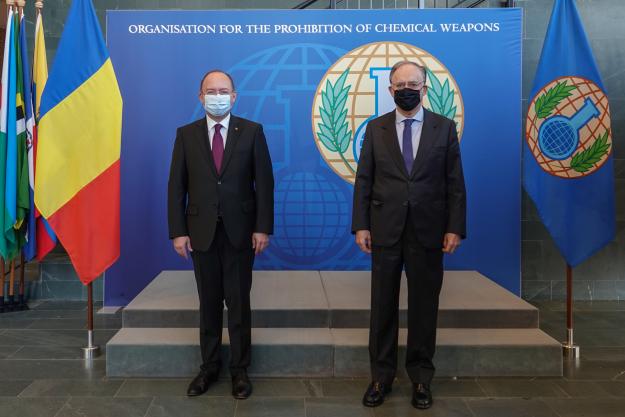
Minister of Foreign Affairs of Romania, H.E. Mr Bogdan Aurescu, with the Director-General of the OPCW, H.E. Mr Fernando Arias
THE HAGUE, Netherlands–9 November 2020–The Minister of Foreign Affairs of Romania, H.E. Mr Bogdan Aurescu, met today with the Director-General of the Organisation for the Prohibition of Chemical Weapons (OPCW), H.E. Mr Fernando Arias, at OPCW Headquarters in The Hague.
The Director-General briefed the Minister of Foreign Affairs on the OPCW’s progress in implementing the Chemical Weapons Convention, highlighting the Organisation’s ongoing efforts to address the threat from chemical weapons use and promote the peaceful application of chemistry. Director-General Arias also provided an update on the upgrade of the OPCW Laboratory into a Centre for Chemistry and Technology and expressed his thanks for Romania’s voluntary contribution to this project.
Foreign Affairs Minister Aurescu stated: “Romania firmly supports the activity of the OPCW’s Director-General and the Technical Secretariat in their complex undertakings meant to advance the purposes of the Chemical Weapons Convention. We have confidence in their professionalism, expertise and impartiality. Romania will continue to be a strong supporter of the OPCW in fulfilling its core mission, thus contributing to ensuring peace and making the world a safer place. I reaffirm my strong belief that the use of chemical weapons is unacceptable under any circumstances.”
Director-General Arias remarked: “I am deeply grateful for Romania’s stalwart support for our shared goal of maintaining and reinforcing the global ban on chemical weapons. I look forward to our continued collaboration in all key areas of OPCW’s work.”
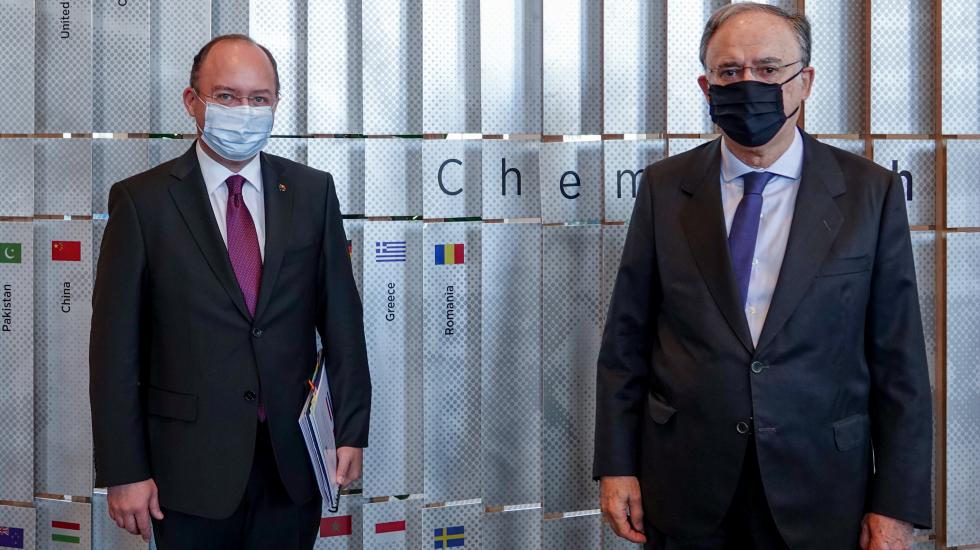
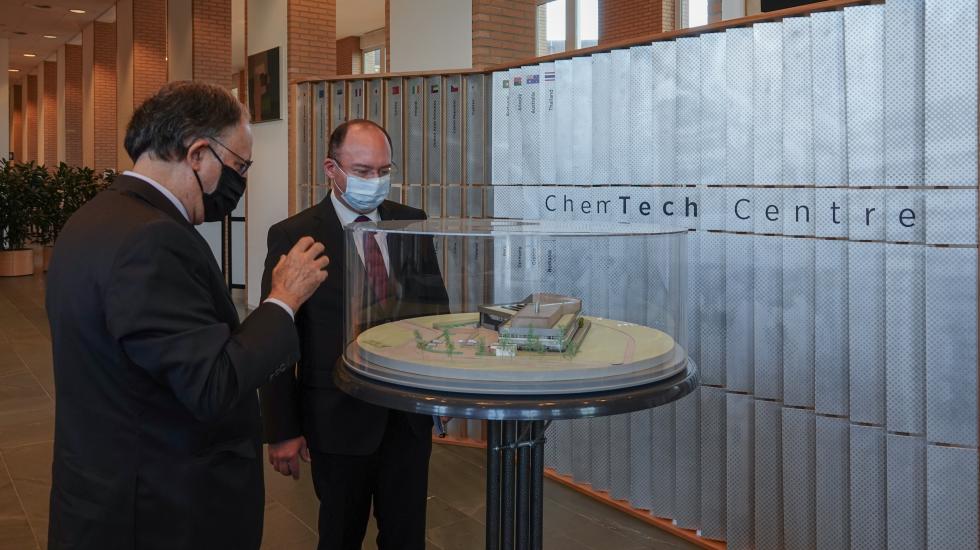
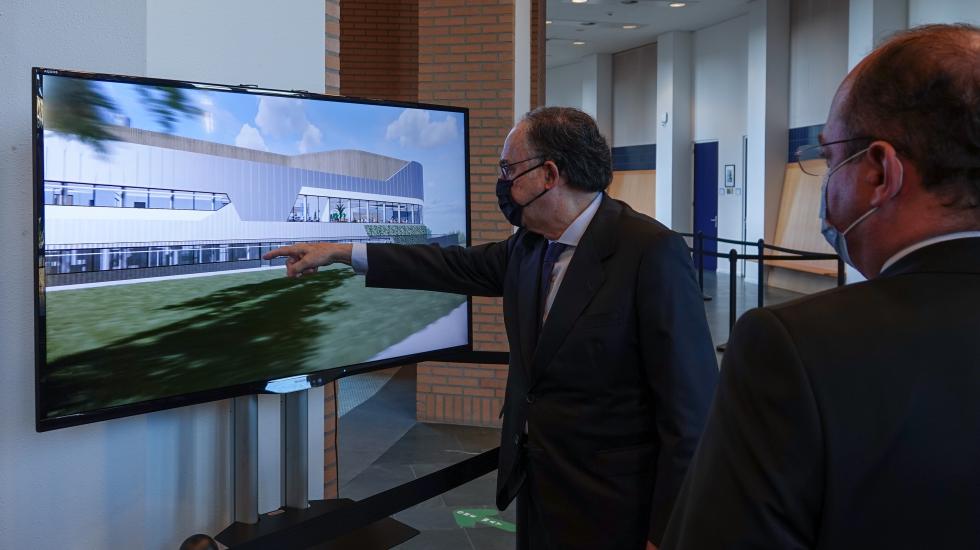
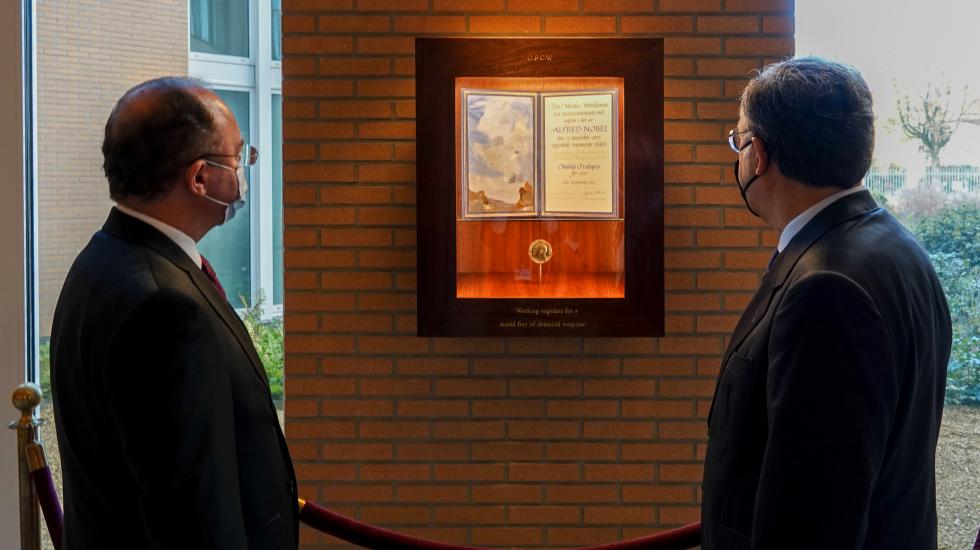
Background
Romania has been an active member of the OPCW since the Chemical Weapons Convention entered into force in 1997. Romania is a member of the Executive Council, the OPCW’s executive organ, which is charged with promoting the effective implementation of and compliance with the Chemical Weapons Convention as well as supervising the activities of the Organisation’s Technical Secretariat.
As the implementing body for the Chemical Weapons Convention, the OPCW, with its 193 Member States, oversees the global endeavour to permanently eliminate chemical weapons. Since the Convention’s entry into force in 1997, it is the most successful disarmament treaty eliminating an entire class of weapons of mass destruction.
Over 98% of all declared chemical weapon stockpiles have been destroyed under OPCW verification. For its extensive efforts in eliminating chemical weapons, the OPCW received the 2013 Nobel Peace Prize.
